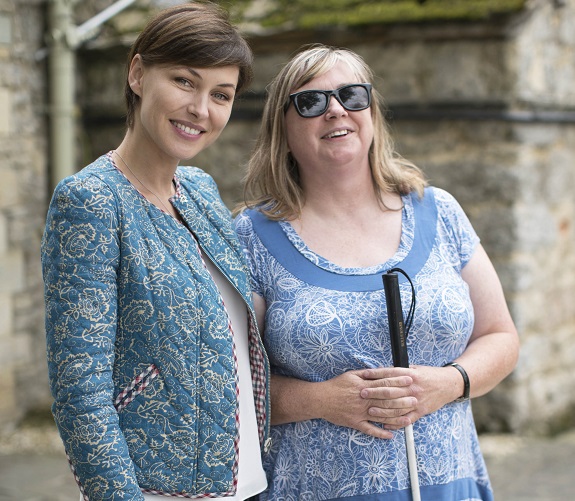
The story of a patient who was among the first in the UK to receive the world’s most advanced ‘bionic eye’ is to feature on ITV this month.
Nikki Watson’s story will feature on “What Would Be Your Miracle?” on ITV 1 on Thursday, May 12 at 9pm.
The 48-year-old, from Devon, was diagnosed with retinitis pigmentosa aged 17 and was told she would eventually lose her vision.
Surgeons at the Oxford Eye Hospital at Oxford’s John Radcliffe Hospital implanted a tiny electronic chip at the back of her right eye’s retina as part of ongoing NHS-funded research of the technology.
The wafer-thin retinal implant chip – which measures 3 x 3 mm – is inserted into the back of the eye to replace damaged photoreceptors in a delicate six to eight hour operation.
The device is connected to a tiny computer that sits underneath the skin behind the ear. This is powered by a magnetic coil which is applied to the skin – from the outside this looks similar to a hearing aid. The device is switched on once everything has healed up after the surgery.
The film follows Nikki before, during and after the procedure.
Series presenter Emma Willis follows the inspirational and emotional stories of people whose lives are transformed by the power of modern medicine, people who are all hoping for miracles.
The trial, led by the University of Oxford’s Professor Robert MacLaren, also featured on BBC One’s “Trust Me I’m A Doctor” in January this year.
It included the moment Cardiff’s Rhian Lewis was able to read the time for the first time in more than five years.
The trial was funded by the National Institute for Health Research (NIHR) Invention for Innovation (i4i) programme in partnership with Retina Implant AG and the NIHR Oxford Biomedical Research Centre and the NIHR Clinical Research Network.